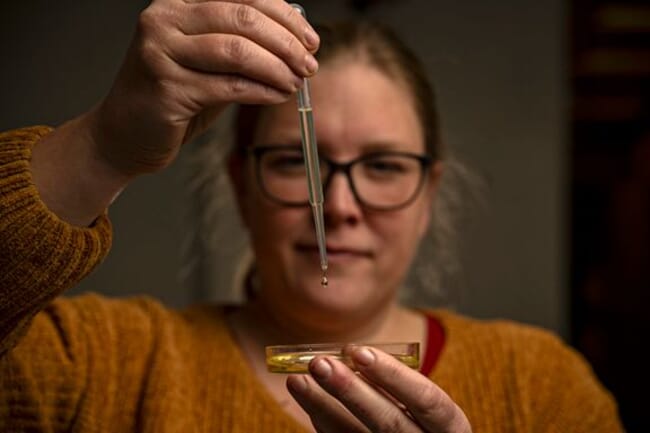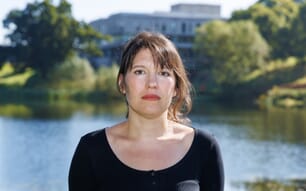
© Jon-Are Berg Jacobsen, Nofima
Researchers at Nofima believe the most promising new feed ingredients for farmed fish are found at the very bottom of the food chain, and include microalgae and they tested whether it is possible to create more productive microalgae strains.
“We wanted to know whether breeding could contribute to faster growth and increased omega-3 content. The initial trials we carried out yielded very promising results,” said Nofima senior scientist, Marie Lillehammer, in a press release.
The scientists chose the species Seminavis robusta - a well-studied alga that reproduces sexually. Eight lines of the species were crossed with each other in one generation and tested in the breeding trial.
Outcomes
Although the species is not very relevant as a feed resource, the trial showed that 18 percent of omega-3 production in the algae is determined by the genes (heritability). Breeding gives an 8.8 percent increase of omega-3 in one generation.
Growth percentages were even higher. With a 50 percent heritability, the microalgae grow 25 percent faster per generation; in theory, a ninefold increase per year, given ten generations in one year.
Lillehammer added: “It may be that inbreeding and physiological limitations would halt growth over generations, or growth would have side effects. However, the trial shows that breeding should be explored further if microalgae is to become an important feed ingredient for European aquaculture.”
The research is part of the project NewTechAqua, which is financed by the EU through Horizon 2020, and runs in collaboration with Universidad de Las Palmas and Ghent University.




